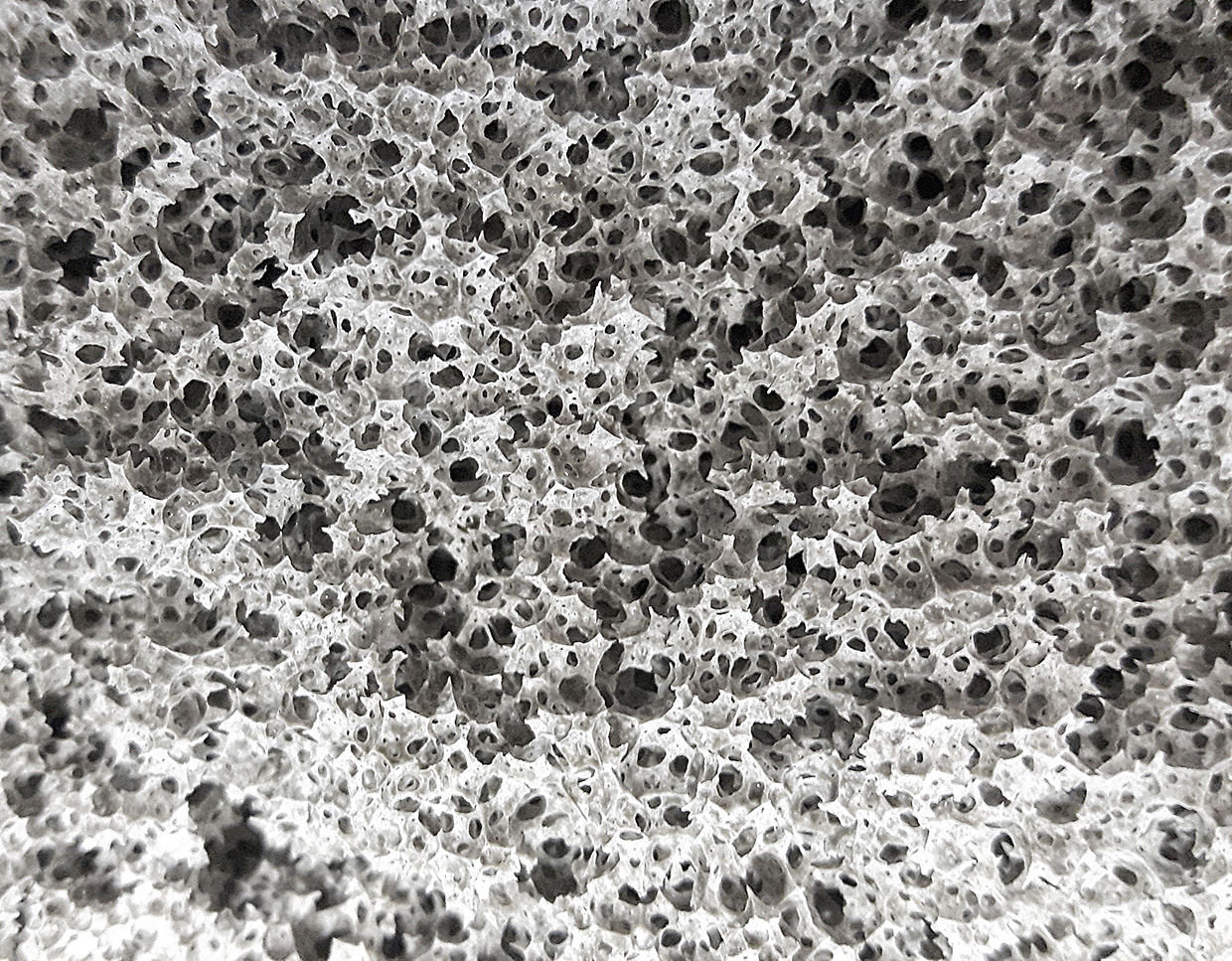Porous building materials for sound and thermal insulation made of fine-grained concrete, construction and demolition waste
The demolition ball hits the wall of the dilapidated building with force – it cracks, dust whirls up. Such a demolition is inevitably accompanied by a lot of building waste: In Baden-Wuerttemberg, the concrete, construction and demolition waste annually amounts to around 36 million tons, 90% of which are recycled. The remaining 10% mainly consist of fine-grained material which is disposed of in landfills. Researchers at the Fraunhofer IBP are working on solutions to convert this fine-grained waste into sustainable, functional building material for sound and thermal insulation purposes, thus returning it to the material cycle. In other words: The scientists turn “dust” into “gold”.
Until now, construction and demolition waste has been ground, then a foaming agent is added to the material which is thermally expanded into porous granules – a process that consumes a lot of energy. The situation is different, however, with the so-called “build-up granulation”. The researchers at the Fraunhofer IBP use this type of granulation to produce micro-porous granules from fine-grained waste and apply inorganic binders to produce panels- completely without using any additional thermal energy. As an alternative procedure, the scientists are focusing on foaming: They take advantage of the scope in the production of micro-porous granules and optimize the microstructure of the granules so that the resulting material reaches competitive values for sound absorption and thermal insulation. With good results: The first foamed micro-porous test specimen are mechanically stable and show a promisingly good sound absorption.
The scientists also focus on the environmental compatibility: They investigate both the fine-grained waste and the new building material with regard to their environmental sustainability. If pollutants accumulated in the building waste, they can detect them and can thus avoid the release of the pollutants. In addition, the Fraunhofer IBP is dedicated to sustainability assessment: What are the benefits of the procedure, from an ecological, economic or sociocultural point of view? By answering these questions the researchers are creating a decisive aspect for a further industrial development.
